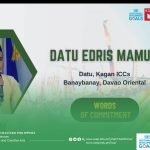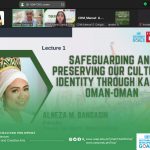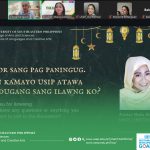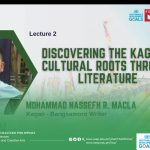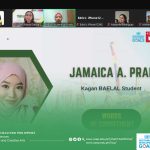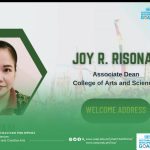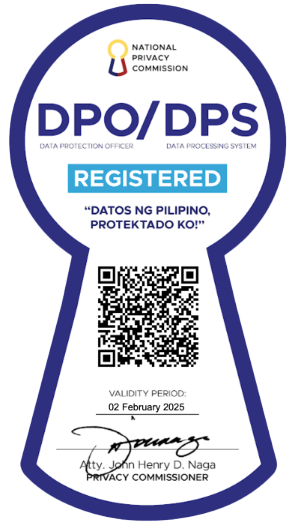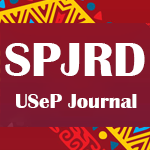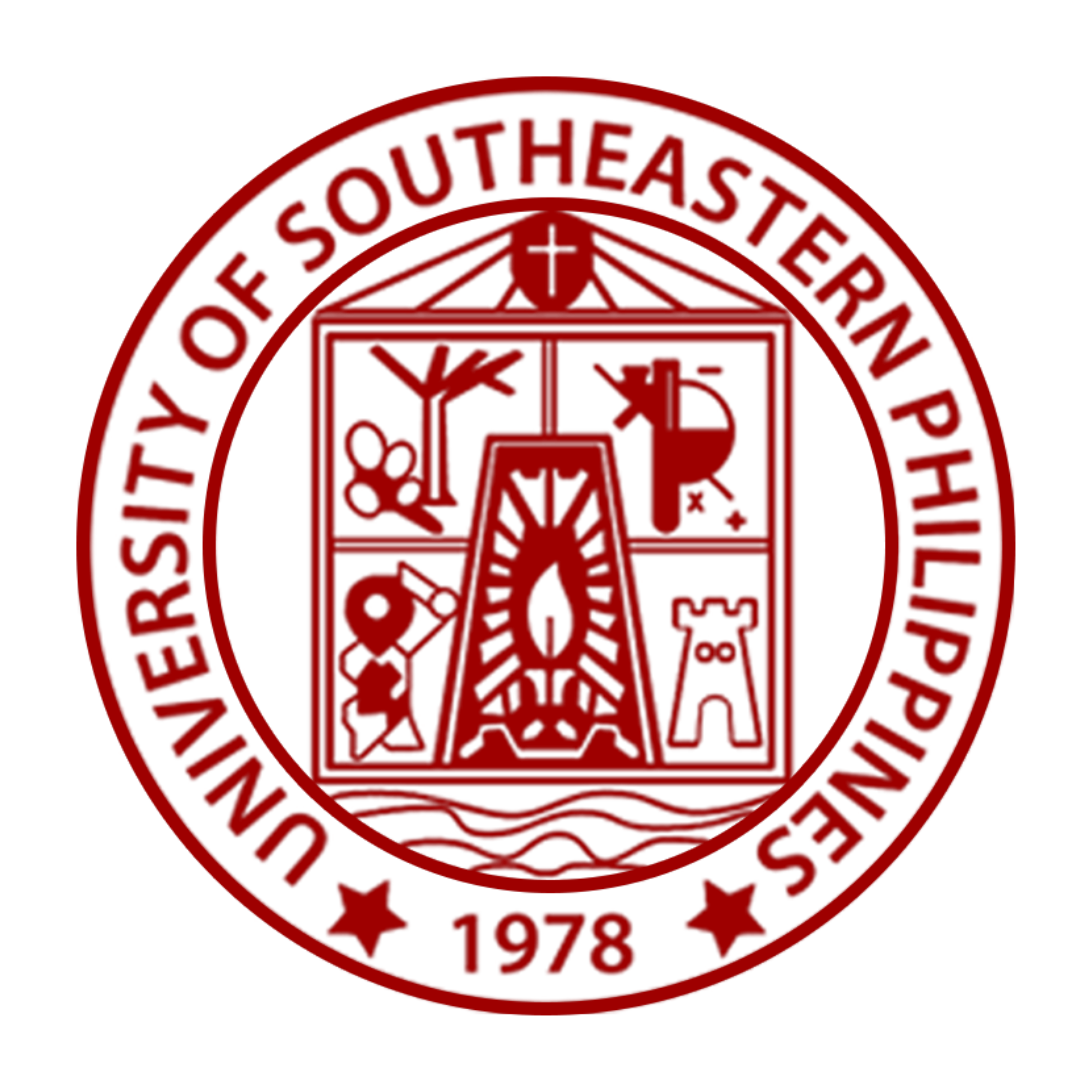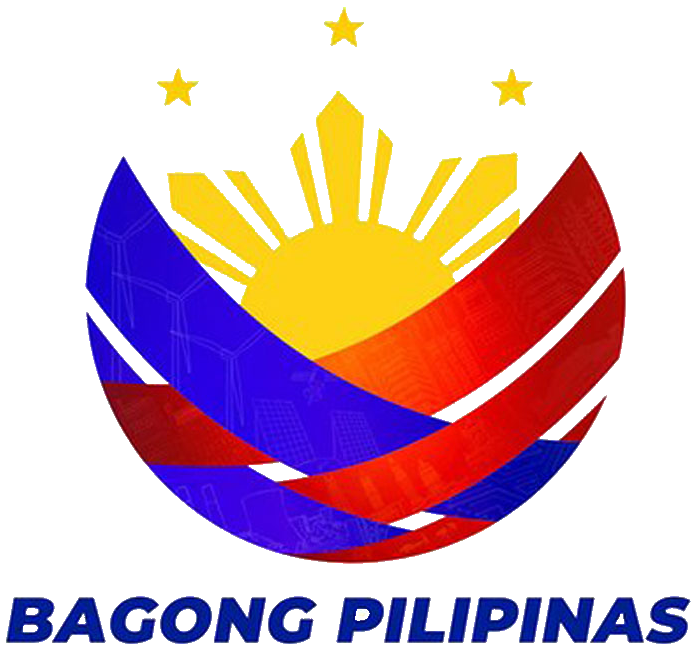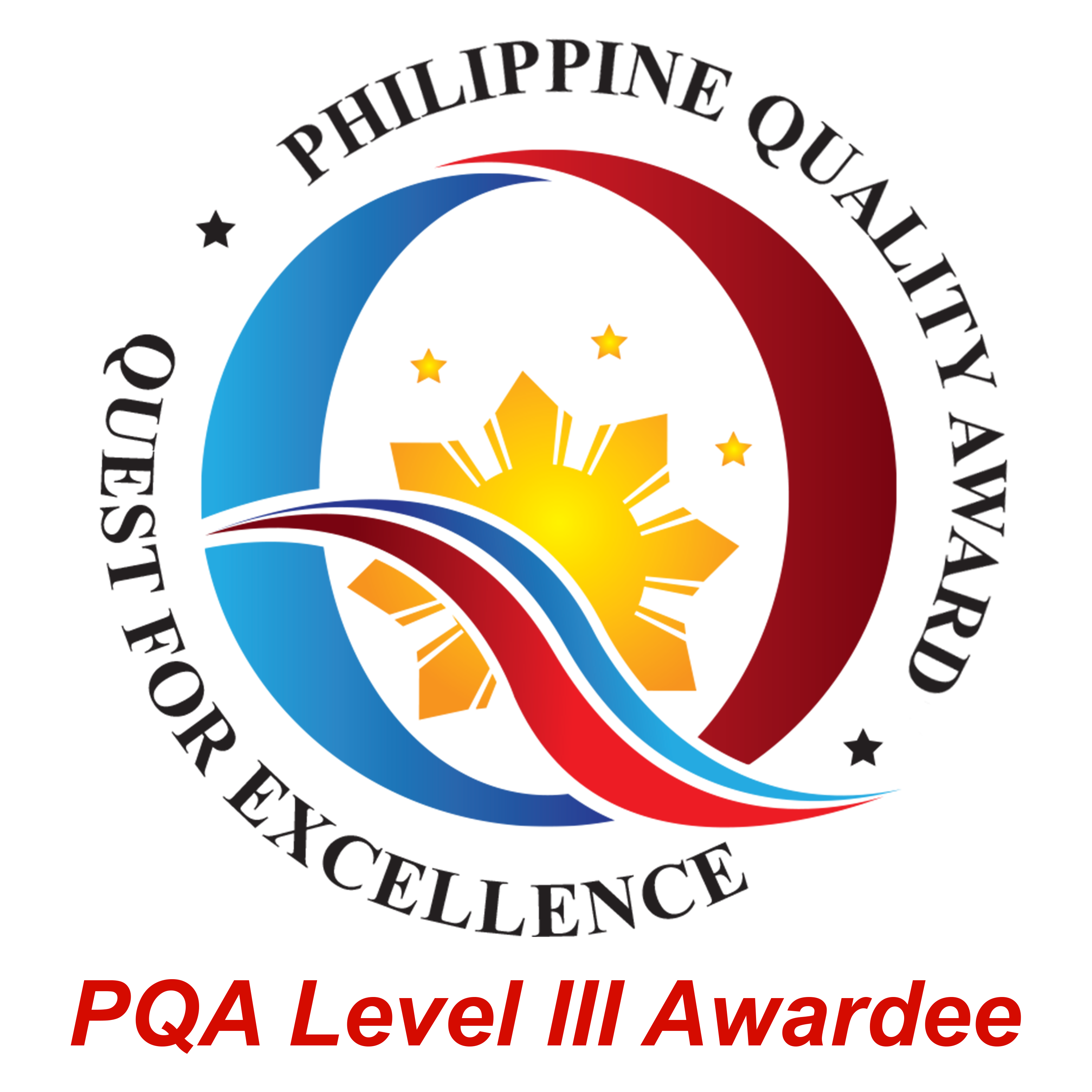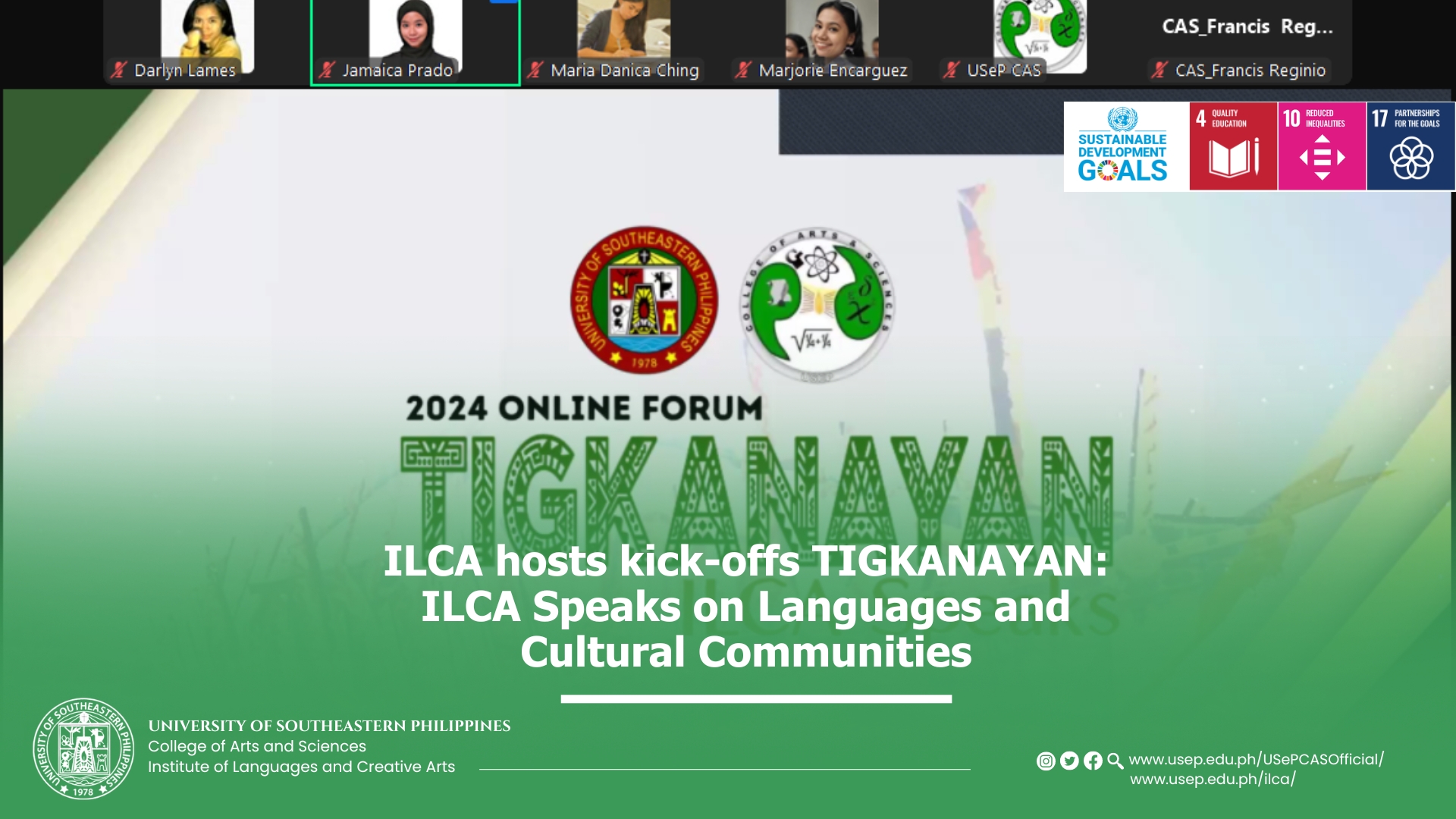
In preserving one’s culture through evocative stories and poetry about the Kagan’s origin and challenges, the first episode of the TIGKANAYAN: ILCA Speaks of the Institute of Languages and Creative Arts – College of Arts and Sciences (ILCA-CAS) kicked off to empower the languages and culture of the different ICCs in Mindanao on September 25, 2024, via Zoom.
The kick-off episode welcomed by the Associate Dean of CAS Asst. Prof. Joy R. Risonar, showcases the true commitment of the College and University to transforming communities by strengthening the conversations on language and cultural studies in Mindanao. In her statement, “With a forum like this, we shall see a future with Mindanaoans who are more aware of their origins and more proactive in preserving their languages and cultures in the face of changing and challenging times.”
During the presentation of the first speaker, Ms. Alneza M. Bangasin, Hiyas sa Panaghiusa 2022, and a USeP alumna provided valuable insights into the importance of safeguarding and preserving cultural identity through the traditional practice of Kagan Oman-Oman. This oral tradition, prevalent among Indigenous communities, involves the transmission of stories, myths, histories, and cultural knowledge through spoken word, often in the form of narratives or songs. Ms. Bangasin emphasized the critical role of Oman-Oman in preserving Kagan’s stories, values, and historical experiences, which are often overlooked in written records. She highlighted that passing down such practices across generations helps keep cultural wisdom alive in a rapidly changing world. She said, “It is important to integrate oral traditions into modern educational systems, media platforms, and community programs, encouraging storytelling festivals, recording oral histories, and creating cultural archives to ensure that these traditions are preserved and appreciated.”
Mr. Mohammad Nassefh R. Macla, a renowned Kagan-Bangsamoro Writer, emphasized the importance of prioritizing the recognition of traditionally marginalized subjects in his discussion on “Discovering the Kagan’s cultural roots through literature.” He highlighted the need to take Kagan’s dying oral tradition seriously and collect and analyze the community’s origins as part of the Kagan Toganowan (undocumented oral tradition) to embody a transformative philosophical worldview. As encouraged by Mr. Macla, “We need to go back to the challenge of prolificity. The challenge is to write more gugodanen and stories about ourselves, and the challenge is to succumb to the caprice of writing. There is so much to tell about us, about our individuality. We just have to start writing!”
In the presence of Kagan Piyagmatikadong (Municipal Tribal Chieftain) Datu Edris Mamukid, the first episode was strengthened. The Indigenous political structure (IPS) of Kagan ICCs has been further empowered since the implementation of RA 8371, also known as the IPRA Law. This has enabled the IPs to exercise their rights and privileges, manage and develop their lands and natural resources, and preserve their cultural identity as Kagan IPs. In Datu Mamukid’s words of commitment, he emphasized, “If we are to preserve our culture, we must continue creating. That means preserving our culture does not require contempt or disrespect for other cultures.” As the Kagan Piyagmatikadung, he highlighted that many unique stories from the Kagan ancestors are worthy of sharing and preserving. “These are stories that define us as the Kagan IPs of today. Stories to tell for our present and future generations that once upon a time, Kagan people, the people of the first light, co-existed and lived in harmony with nature and practiced our Islam religion as our way of life,” he added.
Ms. Jamaica A. Prado, a dedicated Kagan language student, deeply values the rich culture of Bangsa Kagan literature, language, and heritage. She believes these elements are not just remnants of yesterday but the beating heart of her present and future community to which she belongs. As she committed, “From the point of view of an applied linguistic student, the significance of language in preserving our culture, speech patterns, stories we share, and the words we use all speak to something more than communication; they represent our identity as Kagan. 𝘼𝙠𝙤 𝙮𝙖𝙥𝙖𝙣𝙖𝙧𝙞𝙜 𝙣𝙖 𝙢𝙖𝙜𝙖 𝙥𝙧𝙤𝙩𝙚𝙠𝙩𝙖 𝙖𝙬 𝙢𝙖𝙜𝙖𝙥𝙧𝙚𝙨𝙚𝙧𝙗𝙖 𝙨𝙖𝙣𝙜 𝙠𝙖𝙣𝙖𝙢𝙞 𝙠𝙪𝙡𝙩𝙪𝙧𝙖! (I commit to the cultural preservation of our identity.) I make sure that this rich composition of Kagan history, language, and culture continues to remain bright and alive whether through research, story-telling, education, or community involvement.”
Finally, Associate Professor Sajed S. Ingilan, the program head of the AB English Language, has expressed his full support for empowering the Kagan ICCs as part of the University’s commitment to instruction, research, extension, and production. This demonstrates the College’s dedication to championing the Indigenous cultural communities and making these initiatives accessible to all the people in Mindanao.
This collaborative initiative involves ILCA, the CAS Language and Literature Department, Ms. Maria Danica P. Ching as the event’s host, and the Language Students’ Society Organization, particularly Ms. Marjorie M. Encarguez, Ms. Julianne P. Lomarda, Ms. Jamaica A. Prado, Ms. Darlyn D. Lames and Ms. Jessa Joy C. Odog as the event’s technical committee. It signifies a service-oriented expression among faculty, students, and staff. With the groundwork laid during the event, this October, TIGKANAYAN: ILCA Speaks will present another episode offering a valuable resource for academics, researchers, and students in applied linguistics and cultural studies.

